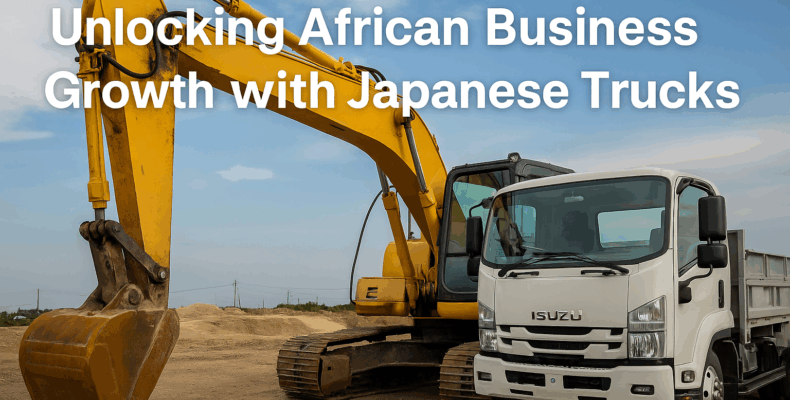Across Africa, the demand for reliable transportation and agricultural machinery is rising fast. Japanese used trucks, buses, tractors, and industrial machines are powering this growth. These vehicles offer exceptional durability, fuel efficiency, and ease of maintenance. As a result, they are the first choice for many entrepreneurs and fleet operators across the continent.
Why Japanese Machinery Dominates in Africa
First of all, Japanese vehicles are known for their long-term reliability. Whether it’s a Toyota Coaster bus or a Yanmar tractor, users can depend on these machines even in remote and demanding environments. In addition, many models come with simple mechanical systems. This means local mechanics can maintain them with ease.
Furthermore, Japanese trucks and tractors are often more affordable than brand-new alternatives. This price advantage makes them accessible to small and medium-sized business owners. So, they quickly become the backbone of agricultural, transportation, and construction ventures.
Combined Business Models Are Booming
Many African entrepreneurs are now combining sales and rental of multiple machinery types. For example, one company might import Isuzu trucks, Mitsubishi buses, and Kubota tractors together. Then, they offer them to farms, schools, transport firms, and mining companies. This diversification spreads risk and maximizes profit.
Moreover, with a single container shipment, dealers can deliver a variety of used machines. This includes forklifts, rotavators, buses, and even dump trucks. That flexibility is especially helpful in countries like Uganda, Kenya, and Nigeria—where buyers need different equipment for mixed-use operations.
Import-Friendly Nations and Markets
Several African countries are especially open to used Japanese machinery. Tanzania, Mozambique, Ghana, and Zambia have clear import regulations and steady demand. Moreover, many government development programs rely on imported tractors and buses.
Because of this, local distributors are expanding fast. Their networks reach both urban and rural customers. They use social media, WhatsApp groups, and word-of-mouth to find buyers.
Key Benefits for Global Exporters
Japanese exporters who focus on Africa enjoy:
-
Repeat business from loyal local buyers
-
Large volume container deals
-
Year-round sales, not just seasonal demand
-
Lower risk due to the high resale value of Japanese brands
Additionally, when exporters offer after-sales service support—like manuals, spare parts, or video tutorials—they gain a major advantage.
How to Get Started
To enter this promising market, it’s vital to work with trusted partners. Building strong logistics and documentation support will also boost buyer confidence. If you’re looking to connect with reliable suppliers, here is a helpful resource:
👉 Top 5 Trusted Japanese Used Truck Exporters for Global Buyers
This guide includes established exporters who can provide not just trucks, but also buses, tractors, and machinery—all from one place.
Conclusion: A Multi-Sector Opportunity with Huge Potential
In summary, Africa offers tremendous opportunities for those who understand its diverse machinery needs. By combining Japanese trucks, buses, tractors, and industrial tools, savvy businesspeople are building empires. Now is the time to explore this high-growth market—and secure long-term partnerships that fuel both development and profit.
